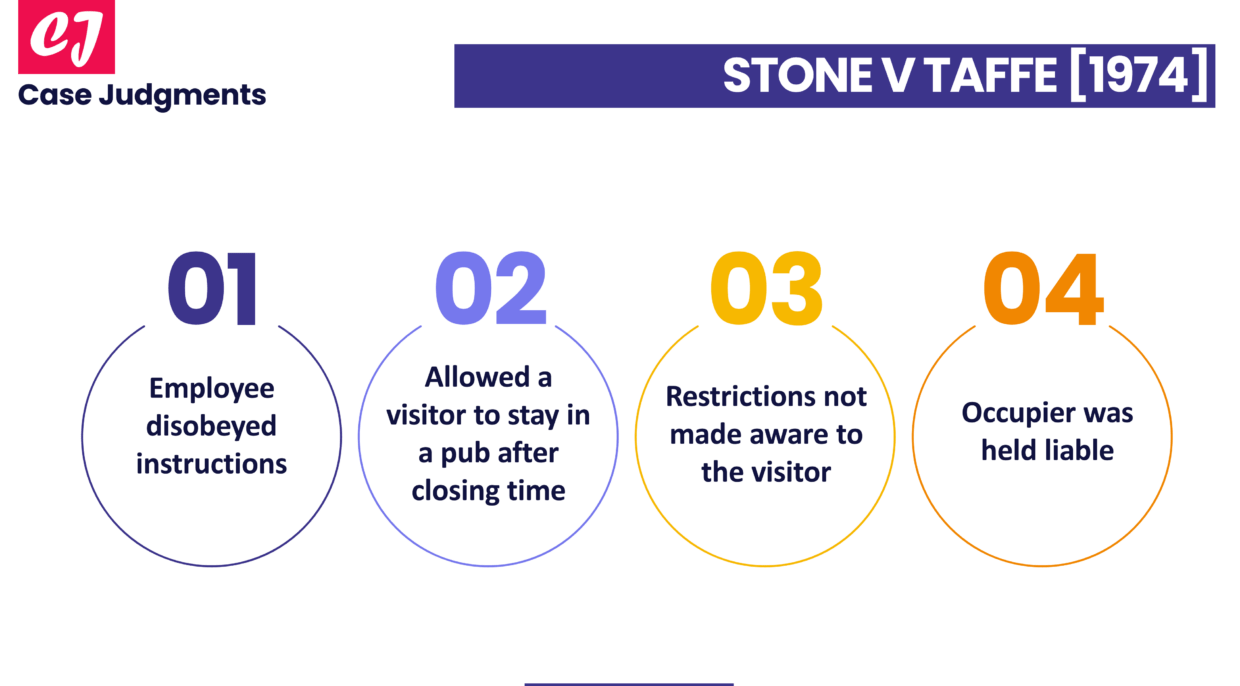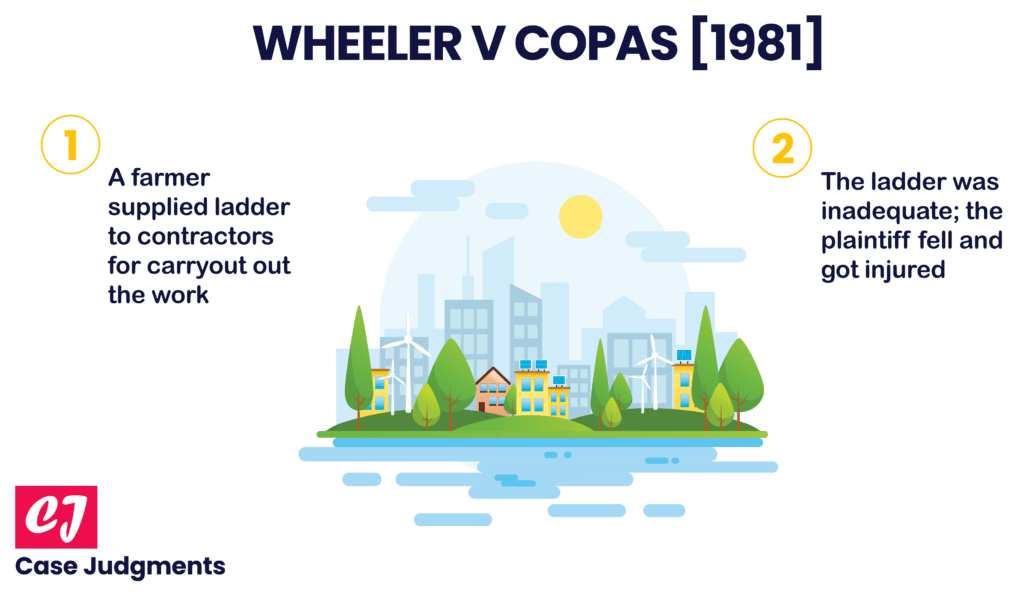
A Quick Summary of Stone v Taffe [1974]
Case name & citation: Stone v Taffe [1974] 1 WLR 1575; [1974] 3 All ER 1016
Court and jurisdiction: Court of Appeal, England and Wales
Year of the case: 1974
Area of law: Occupier’s liability; restrictions of time
What is the case about?
Occupiers hold a duty of care towards all lawful visitors on their premises. But sometimes a difficult situation arises when an employee of the occupier violates an express instruction not to allow visitors after a certain time. In that case, does the occupier still owe a duty of care to those visitors or not? Stone v Taffe [1974] is a case on this issue.
Facts of the case (Stone v Taffe)
The defendants in Stone v Taffe owned a public house that was administrated by their servant, Taffe. Taffe allowed Stone (among others) to stay on the premises until 1 a.m., in violation of the licensing laws and contrary to clear instructions. Taffe then negligently extinguished (or failed to light) the lamp over the staircase, which was structurally safe, causing Stone to fall downstairs and die.
The defendants denied liability on the grounds that the claimant was a trespasser and not a lawful visitor since he was there after closing time.
Issue raised
Were the defendants (occupiers) liable or not?
Judgment of the Court in Stone v Taffe
The Court of Appeal determined that Taffe was acting in the course of his employment and that Stone was still a lawful visitor at the time.
To resolve the issue, the following question was considered:
“Did Mr. Stone know, or ought he on a balance of probabilities to be held to have known, that his permission to be there ended reasonably soon after 10.30 p.m.?”
It was held that Stone was a lawful visitor since he had not been made aware of the time restriction by the servant, Taffe. He did not know of the prohibition that no visitors were allowed to remain after closing time.
Therefore, the defendants (occupiers) were held liable. And as far as the issue of vicarious liability was concerned, the Court decided that Taffe was acting in the course of his employment, despite his ignoring instructions. Therefore, the occupiers were liable.
The legal point emerging from the case
Restrictions by time must be made equally clear to the visitor.
List of references:
- https://onlinelibrary.wiley.com/doi/pdf/10.1111/j.1468-2230.1976.tb01445.x
- https://carlilandcarbolic.com/tort-law/specific-duties/occupiers-liability/
- https://www.studocu.com/en-gb/document/university-of-kent/the-law-of-obligations/occupiers-liability/1447295
- https://www.12kbw.co.uk/wp-content/uploads/2021/11/2.7-Occupiers-Liability-%E2%80%93-How-Not-to-Slip-in-Litigation-Simon-John-Cressida-Mawdesley-Thomas.pdf
You might also like:
More from tort law:
- Owens v Brimmell [1977]: A Quick Summary
- Watt v Hertfordshire County Council [1954]
- Carmarthenshire County Council v Lewis [1955]
Hope you found this helpful!

